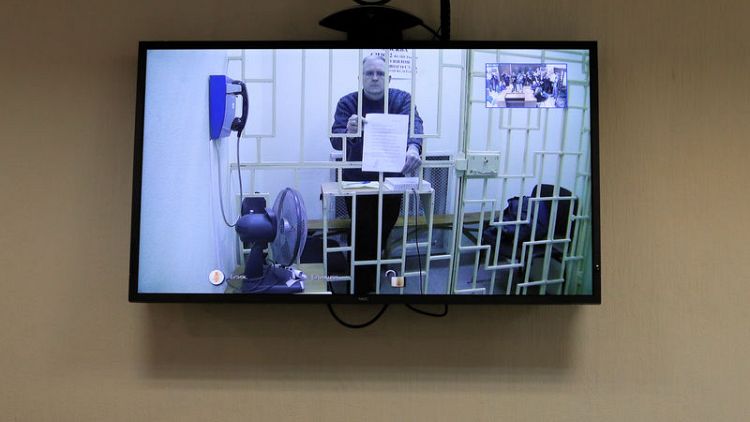By Tom Balmforth
MOSCOW (Reuters) - Russia on Tuesday accused a former U.S. Marine it has held for almost a year on spying charges of faking health problems in custody and lying about his ill-treatment to stir up noise around his case.
Paul Whelan, who holds U.S., British, Canadian and Irish passports, was accused of espionage after agents from Russia's Federal Security Service detained him in a Moscow hotel room on Dec. 28. Whelan, who is being held in pre-trial detention, denies Moscow's allegations and says he was set up in a political sting.
He has alleged at court hearings that he is being subjected to ill treatment in custody and that his complaints are systematically ignored. In October, he said a prison guard had forced him to his knees and threatened him with a gun.
In August, Whelan's lawyer said his client was suffering from a groin hernia that prison authorities were aggravating, prompting the U.S. embassy to demand immediate access to Whelan. [nL5N25J3BD]
A U.S. diplomat met him last week in jail and called for his immediate release. The U.S. embassy described Whelan's treatment as "shameful", said Moscow had refused permission for an outside doctor to examine him.
On Tuesday, the Russian Foreign Ministry said Whelan's allegations of ill-treatment had not checked out and that diplomats were being granted regular access to him in custody.
"They (the diplomats) know perfectly well that the public statements by the accused about certain abuses and even threats (made to his) life in pre-trial detention - are nothing more than the defence's provocatory line to help artificially create noise around his person," the ministry said in a statement.
It said Whelan had received qualified medical treatment from the detention facility's doctors as well as a special clinic and that they had not found him to have any serious ailment.
"So there is no threat to Whelan's health, and the pretending which he is periodically resorting to is apparently part of the training for U.S. intelligence officers," the ministry said.
The U.S. embassy and lawyers for Whelan did not immediately respond to messages seeking comment.
(Editing by Peter Graff)
